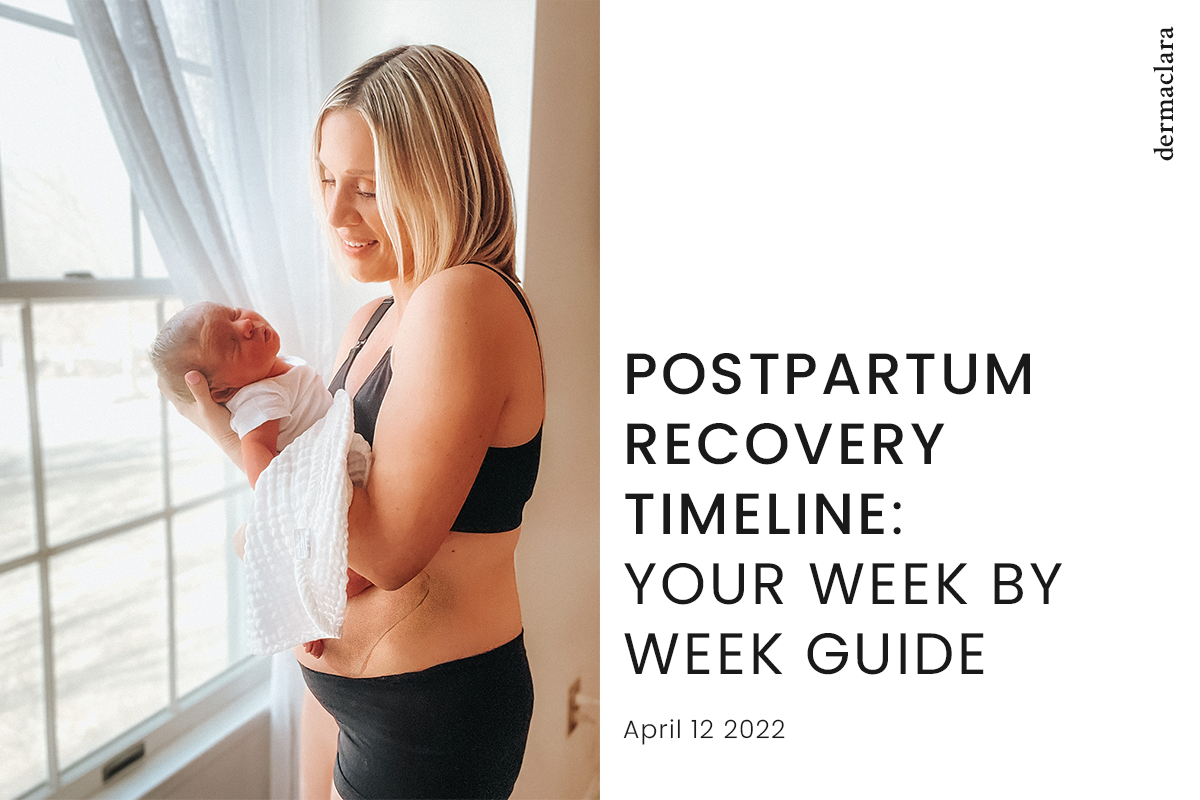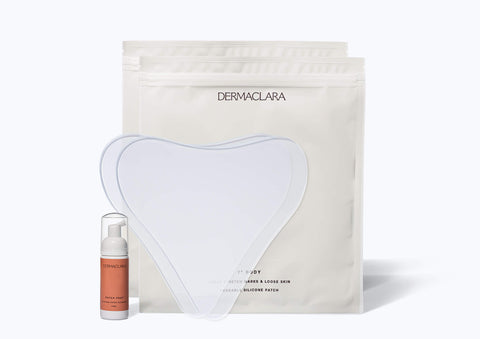Postpartum Recovery Timeline: Your Week-by-Week Guide

Okay! You just had the baby, you’re pretty wiped out, but this is the most crucial time to emphasize self-care. Taking time to recover is essential to your physical, mental, and emotional well-being. Below we break down a week-by-week guide to postpartum recovery. (Below covers the postpartum journey for vaginal delivery but stay tuned for our week-by-week C-section guide.)
Week 1
You will notice a lot of physical changes post-delivery. Your whole body may feel a bit swollen due to an increase in the hormone progesterone. Progesterone leads to water retention, making your hands, legs, and feet feel puffy. In addition, your breasts may swell and be painful as your milk comes in.
Your body is trying to find its way back to normal, including your uterus. After birth, you may experience mild cramping as your uterus contracts back to its pre-pregnancy size. This cramping often intensifies during breastfeeding.
Postpartum bleeding, called lochia, is expected and normal. Like your period, it will appear bright red and run a little heavier initially. Towards the end, it will appear brownish and lighten. Our inspiration, Ashley King, recommends investing in a pair of cute absorbent postpartum undies or period underwear. Bleeding will last as long as six weeks, but heavy bleeding should conclude within ten days.
You’ll also notice a lot of emotional and hormonal changes. After childbirth and a newborn who needs constant attention, you may feel emotional and overwhelmed. Many mamas confess that emotions peak on day three after giving birth. So, be kind to yourself, take it easy, and give yourself room to make mistakes.
Weeks 2 & 3
Many mamas describe these weeks as the timeframe when things begin to smooth out.
If you tore while giving birth, the soreness and tenderness accompanying postpartum have now transitioned into itchiness. But itchiness is a good sign! It means your skin and any stitches are healing. Make sure you don’t miss any follow-up appointments to track your healing.
By this point, you will have found a rhythm with breastfeeding. If you are struggling, you have resources! Contact a lactation consultant and have some lanolin on hand for sore nipples. Additionally, watch out for signs of clogged ducts which can lead to mastitis.
Again, make sure you are being kind to yourself! Start exploring movement that feels good for you and your post-pregnancy body, and eat nutritious foods.
Week 6
Physically, you are pretty much back to normal, or your new normal post-childbirth. Your uterus has returned to pre-pregnancy size, lochia will have stopped, and your doctor may have cleared you for exercise and having sex (not that you need to make another baby so soon). At this time, you will still feel emotionally different, which is to be expected. It is normal to be overwhelmed or exhausted. If ever you feel concerned about your emotional well-being, don’t hesitate to chat with a doctor; support is there where you need it.
How Dermaclara Fits into Your Postpartum Recovery
As you were pregnant, you may have noticed stretch marks developing or loose skin. Post-pregnancy is where you can tackle these side effects.
During pregnancy, the skin stretches rapidly due to hormones and to accommodate the life you are growing in your body. The rapid expansion causes the building blocks of the skin, collagen and elastin, to tear, which appear as stretch marks. Additionally, during pregnancy, the elasticity of the skin changes. There is an increase in estrogen, relaxin, and adrenocortical hormone, making the skin prone to stretch marks and breaking down the firmness. Post-pregnancy, you are left with stretch marks and loose skin.
You don’t have to wait for week 6 to begin treatment. Dermaclara is the #1 clinically proven, pregnancy and breastfeeding-safe product for stretch mark erasure and tightening loose skin. Our non-invasive, chemical-free silicone patches create a microclimate that increases natural collagen production and locks in natural moisture. Unlike topical creams, Dermaclara patches safely penetrate the dermis, clearing stretch marks and firming up the skin.
So as you continue on your postpartum recovery journey, take Dermaclara with you. Let this be the one thing you do for yourself today as you continue figuring out reading your baby's mind and getting familiar with your post-childbirth body.

Leave a comment